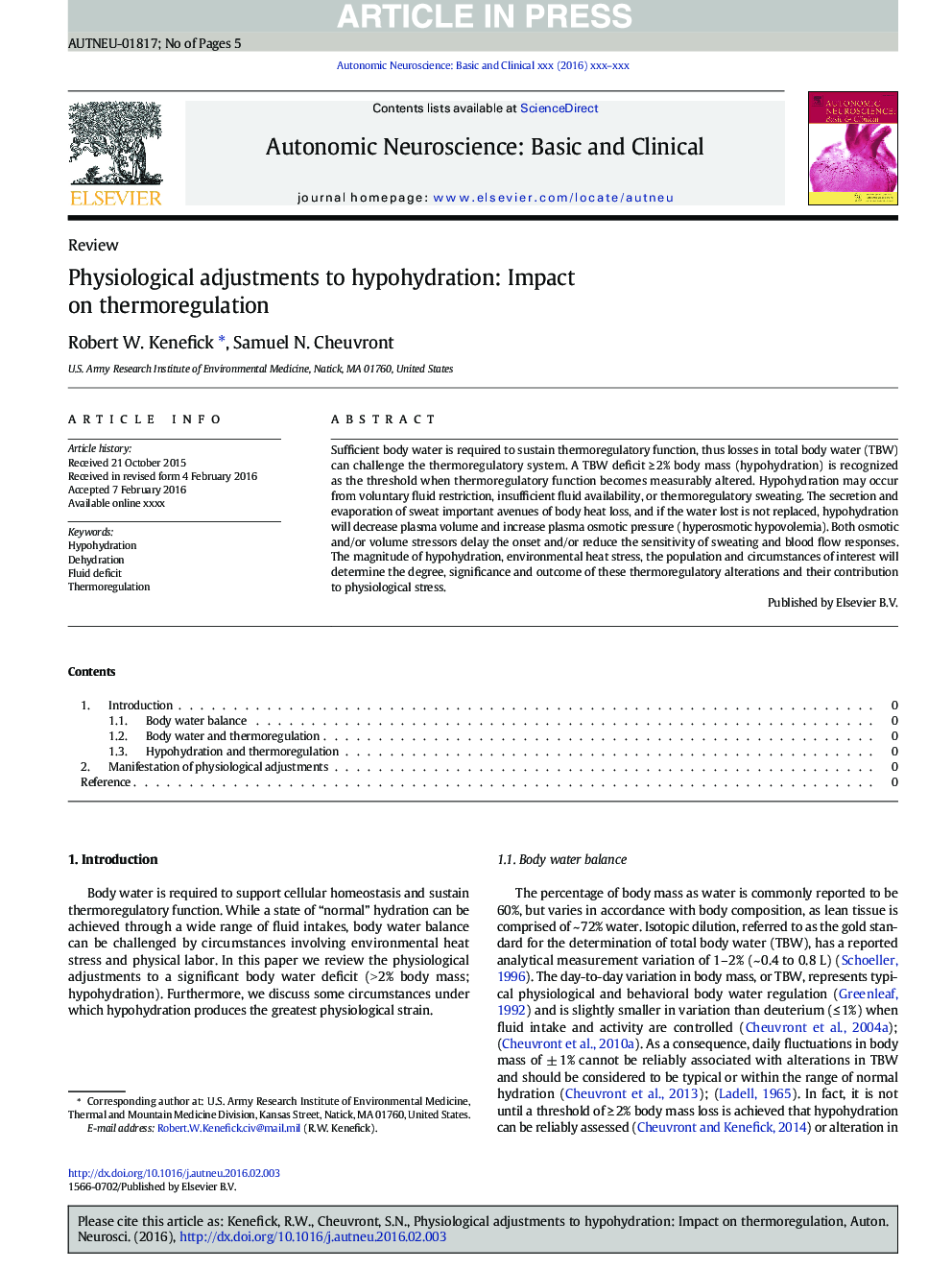| Article ID | Journal | Published Year | Pages | File Type |
|---|---|---|---|---|
| 6003895 | Autonomic Neuroscience | 2016 | 5 Pages |
Abstract
Sufficient body water is required to sustain thermoregulatory function, thus losses in total body water (TBW) can challenge the thermoregulatory system. A TBW deficit â¥Â 2% body mass (hypohydration) is recognized as the threshold when thermoregulatory function becomes measurably altered. Hypohydration may occur from voluntary fluid restriction, insufficient fluid availability, or thermoregulatory sweating. The secretion and evaporation of sweat important avenues of body heat loss, and if the water lost is not replaced, hypohydration will decrease plasma volume and increase plasma osmotic pressure (hyperosmotic hypovolemia). Both osmotic and/or volume stressors delay the onset and/or reduce the sensitivity of sweating and blood flow responses. The magnitude of hypohydration, environmental heat stress, the population and circumstances of interest will determine the degree, significance and outcome of these thermoregulatory alterations and their contribution to physiological stress.
Related Topics
Life Sciences
Neuroscience
Cellular and Molecular Neuroscience
Authors
Robert W. Kenefick, Samuel N. Cheuvront,
